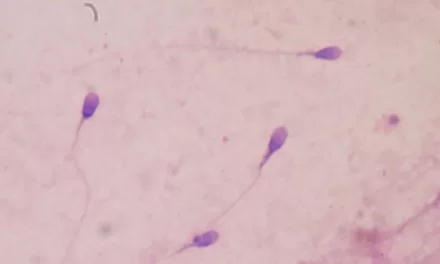Breakthrough therapy developed by Swedish researchers could revolutionize cancer treatment with more personalized, scalable options.
Researchers at Uppsala University and KTH Royal Institute of Technology have unveiled a pioneering antibody-based precision medicine that may offer a faster, safer, and more customizable approach to cancer treatment. This innovative antibody, described in a recent study published in Nature Communications, combines three distinct functions—targeting, delivery, and immune activation—into a single therapeutic agent, demonstrating potential for significantly improving cancer therapy outcomes.
The new “3-in-1” antibody is designed to amplify the immune system’s response to cancer by simultaneously targeting tumor-specific mutations, delivering drug payloads, and activating immune cells. The therapy’s dual ability to stimulate T-cells while directly delivering tumor-specific materials makes it a powerful tool for personalized immunotherapy.
Precision Medicine with an Immune Boost
The antibody targets neoantigens—unique mutations found only in cancer cells—while stimulating immune cells to recognize and attack the tumor. According to Professor Sara Mangsbo from Uppsala University’s Department of Pharmacy, the new approach leverages over 15 years of research into precision medicine and the role of antibodies in immune system activation.
“We can now show that our new antibody method works as a precision medicine for cancer,” said Mangsbo, who co-led the study with Professor Johan Rockberg from KTH Royal Institute of Technology.
By activating the immune system and directing T-cells specifically to the cancerous cells, the therapy promises a more targeted approach than conventional cancer treatments, potentially reducing the side effects and improving efficacy.
Successful Preclinical Results
The research team tested the new antibody in both human blood samples and animal models. Results from preclinical trials showed that the therapy successfully activated immune cells in human samples and increased survival in mice with cancer. In higher doses, the treatment even helped to eradicate tumors in the mice. Furthermore, the new therapy proved safer compared to traditional cancer treatments, which often have severe side effects.
The antibody’s ability to be tailored to a patient’s specific tumor characteristics offers a new avenue for personalized treatment. According to Rockberg, the production process is both cost-effective and scalable, which could significantly reduce the time and expense involved in bringing a treatment to market.
Scalable and Customizable Treatment
Unlike current cancer therapies, which are often expensive and time-consuming to develop, this new approach promises to be more accessible. The “3-in-1” drug consists of two key components: a bispecific antibody, which can be produced in large quantities in advance, and a custom peptide part that is synthesized rapidly on a small scale for a specific type of cancer.
“This combination makes the medicine both easy to produce at scale and flexible enough to be customized for each patient’s unique tumor,” explained Rockberg. “This approach should make it quicker for patients to go from diagnosis to treatment, increasing accessibility while lowering costs.”
Next Steps and Future Outlook
The team is now focused on optimizing the production process for the antibody and moving into clinical trials with human participants. If successful, this therapy could offer a significant breakthrough in the field of cancer immunotherapy, providing more effective and personalized treatment options for patients.
As the research progresses, the goal is to continue improving the drug’s safety and efficacy before it becomes available for clinical use. The study’s findings mark a significant milestone in the development of personalized cancer treatments, with the potential to revolutionize the way we approach cancer therapy.
The full study, titled “A bispecific CD40 agonistic antibody allowing for antibody-peptide conjugate formation to enable cancer-specific peptide delivery, resulting in improved T-cell proliferation and anti-tumor immunity in mice,” was published in Nature Communications on November 5, 2024. The research was supported by funding from the Knut and Alice Wallenberg Foundation, Vinnova, the Swedish Cancer Society, and Strike Pharma.
References:
Mebrahtu, A., Laurén, I., Veerman, R., Güclüler Akpinar, G., Lord, M., Kostakis, A., Astorga-Wells, J., Dahllund, L., Olsson, A., Andersson, O., Persson, J., Persson, H., Dönnes, P., Rockberg, J., & Mangsbo, S. (2024). A bispecific CD40 agonistic antibody allowing for antibody-peptide conjugate formation to enable cancer-specific peptide delivery, resulting in improved T-cell proliferation and anti-tumor immunity in mice. Nature Communications. DOI: 10.1038/s41467-024-53839-5.
For more information on this groundbreaking study, visit Nature Communications or the research teams at Uppsala University and KTH Royal Institute of Technology.











